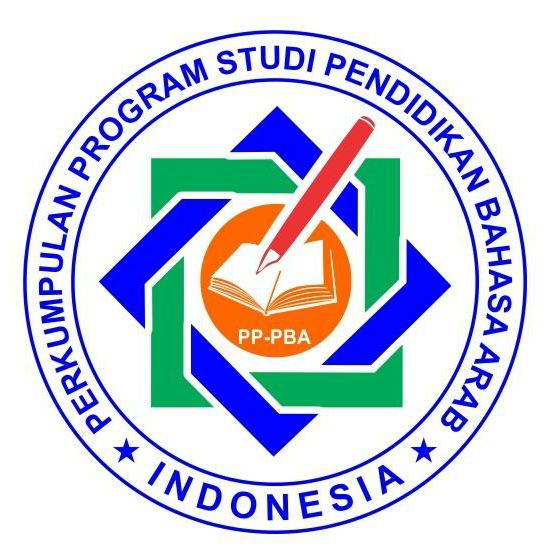Manhaj Abdullāh Ibn Fūdī fī Iḥtiṣāri Tafsīrihi “Ḍiyā' al-Taʾwīl fī Ma'āni al-Tanzīl" to "Kifāyat Du'afāʾ al-Sūdān fī Bayān Tafsīr al-Qurʾān”
DOI:
https://doi.org/10.37680/aphorisme.v5i2.5330Keywords:
Tafsir, Africa, Ibn Fodio, Method, ComparisonAbstract
This study aims to introduce Abdullah ibn Fodio and his works, with a particular focus on his approach to summarizing the tafsir of “Ḍiyāʾ al-Taʾwīl fī Maʿāni al-Tanzīl” to “Kifāyat Du’afāʾ al-Sūdān fī Bayān Tafsīr al-Qurʾān”, using Juz Amma as the focus of the research. This researcher is qualitative with a type of literature study. The research uses an interpretation approach. The data collection technique uses documentation. The data analysis uses content analysis. The results of the study say that “Ḍiyāʾ al-Taʾwīl” is one of the most important works of Abdullah ibn Fodio in the field of tafsīr, which he compiled based on various tafsīr books. The study results say that his interpretation of "Ḍiyāʾ al-Taʾwīl fī Maʿāni al-Tanzīl" is a linguistic interpretation to some extent and is based on several interpretations, making it very important in northern Nigeria. As for " Kifāyat Du’afāʾ al-Sūdān" is an abbreviation of the broad topic described in the previous interpretation. It enjoys narrative ease and simplification by focusing on the intended goals and some of Israel's stories and effects. The interpretation of " Ḍiyāʾ al-Taʾwīl fī Maʿāni al-Tanzīl" is suitable for researchers and advanced science students with experience and the ability to absorb details. At the same time, "Kifāyat Du’afāʾ al-Sūdān" is suitable for novice science students, as its simple and concise style characterizes it without digging into the details, making it one of the most prominent interpretations spread across northern Nigeria.
References
Abdulyakeen, A., & Abdulrahman, A. (2021). Abdullahi Fodio’s Administrative Thesis on Corruption in the Sokoto Caliphate: Lesson for Nigerian Public Service. Jalingo Journal of Social and Management Sciences, 3(2), 112–134.
Adam, A. I. (2014). Re-inventing Islamic Civilization in the Sudanic Belt: The Role of Sheikh Usman Dan Fodio. Journal of Modern Education Review, 4(6), 457–465.
Adam, A. I., & Ibrahim, H. A. (2017). The Notion of Mahdiyyah as Conceived by Sheikh Usmān Dan Fodio. Intellectual Discourse, 25(1).
Agai, J. M. (2014). The rise of Islamic Jihad in Northern Nigeria and its Implications on the Jos-Plateau Religious Conflicts. Social Sciences, 3(3), 67–73.
Ahmed, S. (2014). Shehu Usman dan Fodio (1754-1817) Islamic Reformer. Social Sciences.
Al-Andalusi, Y. (1993). Tafsir al-Bahr al-Muhith. Dar Al Kotob Al Ilmiyah.
Al-Qur’aniyah, M. al-T. li-A. (2019). Mausuah at-Tafsir al-Maudhu’i Li al-Qur’an al-Karim. Mamlakah Al-‘Arobiyah As-Su’Udiyah : Markaz Al-Tafsir Li-Addirosat Al-Qur’aniyah, 1, 137.
Amanambu, U. E. (2017). Historicizing the Extant Remote Causes of the Usman Dan Fodio’s 1804 Jihad: A Lesson For the Nigerian Contemporary Leaders. IGWEBUIKE: African Journal of Arts and Humanities, 3(3).
Amanambu, U. E. (2019). The Parallelism between Injustice and the 1804 Usman dan Fodio’s Jihad: A Lesson For the Nigerian Leaders. Social Sciences.
Aoun, J. E., Benmamoun, E., & Choueiri, L. (2009). The Syntax of Arabic. Cambridge University Press. https://books.google.co.id/books?id=Q4MhAwAAQBAJ
Audu, M. S., & Osuala, U. S. (2014). Historicising the Views of Scholars on the Origin of the Jihad of Shehu Uthman Dan Fodio. Academic Journal of Interdisciplinary Studies, 3(6), 417–422.
Bala, A. A., & Ainu, H. A. (2018). The Role of Shaikh Ushman Ibn Fodiyo in Teaching and Da’awah Activities towards the Spreading the Sunnah and Combating Bid’ah in the Bilad Al-Sudan. International Journal of Arts and Humanities and Social Sciences, 3(8), 34–38.
BALOGUN, I. A. B. (1973). The Life nd Work of the Mujaddid of West Africa,’Uṯ̲ẖ̱mān B. Fūdī Popularly Known as Usumanu Ḍan Fodi. Islamic Studies, 12(4), 271–292.
Beirade, F., Azzoune, H., & Zegour, D. E. (2021). Semantic Query for Quranic Ontology. Journal of King Saud University - Computer and Information Sciences, 33(6), 753–760. https://doi.org/https://doi.org/10.1016/j.jksuci.2019.04.005
Bivar, A. D. H. (1961). The Wathīqat Ahl Al-Sūdān: a Manifesto of the Fulani Jihād. The Journal of African History, 2(2), 235–243.
Carvajal López, J. C. (2024). Asia, Southwest: Bilād al-Shām, Iraq and the Arabian Peninsula – The Islamic Period (E. Nikita & T. B. T.-E. of A. (Second E. (Second E. Rehren (eds.); pp. 554–565). Academic Press. https://doi.org/https://doi.org/10.1016/B978-0-323-90799-6.00194-4
Dallari, A. M., & Gonimi, B. B. (2023). Biograhy of Sheikh Abdullahi in Fodio and he Structure of Governance in His Light. ATTAKAMUL Journal of Social and Sports Sciences Researches, 7(1), 145–162.
dan Fodio, U. (2018). One Material Religion and Islamic Reform in Northern Nigeria. Veils, Turbans, and Islamic Reform in Northern Nigeria, 1.
Doi, A. R. I. (1968). The Political Role of Islam in West Africa. Islamic Quarterly, 12(4), 235.
Doornbos, M. R. (1975). The Shehu and the Mullah: The Jihads of Usuman dan Fodio and Muhammed Abd-allah Hassan in Comparative Perspective. Genève-Afrique/Geneva-Africa, 14(2), 7.
El-Masri, F. H. (1963). The Life of Shehu Usuman dan Fodio Before the Jihād. Journal of the Historical Society of Nigeria, 2(4), 435–448.
Gidadawa, F. A., Bashar, T. A., & Sarkingobir, Y. (2023). A Nitbit Citation of the Contributions of Sheikh Abdullahi Fodiyo in the Public Health of The 19th Century West Africa and Beyond: A Case Study of" Kitabu Niyyah fi al-’Amali al-Dunyawiyyah Wa al-Diniyyah". International Journal of Education, Culture, and Society, 1(1), 60–71.
Gusau, S. A. (1989). Economic Ideas of Shehu Usman Dan Fodio. Institute of Muslim Minority Affairs. Journal, 10(1), 139–151.
Hiskett, M. (1960). Kitāb Al-Farq: A Work on the Habe Kingdoms Attributed to ‘Uthmān Dan Fodio. Bulletin of the School of Oriental and African Studies, 23(3), 558–579.
Hiskett, M. (2019). A Revolution in History: The Jihad of Usman Dan Fodio. Social Sciences.
Husain al-Zahābī, M. (n.d.). al-Tafsīr wa al-Mufassirūn. Dār al-Kutub al-Hadīśah.
Ibrahim, M. Z. (2009). African Islam: Marriage, Mobility and Education of Women in Dan Fodio’s nineteenth Century Reforms. Religion Compass, 3(2), 168–181.
Idris, R. G., & Ibrahim, A. A. (2017). Reformation of Islamic Knowledge in Hausaland: The Life, Contentions and Contributions of Usman Ibn Fodio. Journal of Creative Writing, 3(1), 32–47.
Intartaglia, C. (1985). Sirāǧ Al—Iḫwān Del Muǧaddid Nigeriano’ Ut̄mān dan Fodio (1754–1817 AD). Oriente Moderno, 4(7/9), 129–175.
Last, M. (2017). Without the Sokoto Caliphate, Would there Ever Have been a Nigeria? Journal for Islamic Studies, 36(1), 12–17.
Mack, B. (2018). Fodiology: African American Heritage Connections to West African Islam. Journal of West African History, 4(2), 103–130.
Mahdi, M. (2015). Ibn Khaldûn’s Philosophy of History: A Study in the Philosophic Foundation of the Science of Culture. Taylor & Francis. https://books.google.co.id/books?id=JIO9CgAAQBAJ
Masud, M. K. (1986). Shehu Usuman dan Fodio’s Restatement of the Doctrine of Hijrah. Islamic Studies, 25(1), 59–77.
Mirza, Y. Y. (2023). ‘A Precious Treatise’: How Modern Arab Editors Helped Create Ibn Taymiyya’s Muqaddima fī Uṣūl al-Tafsīr. Journal of Qur’anic Studies, 25(1), 79–107.
Musa, S. A., & Sule, M. M. (2021). Historical Significance of the Last Five Chapters of Bayan Wujub Al-Hijra of Shaikh Usman ibn Fodio. Social Sciences.
Naylor, P. (2018). Abdullahi dan Fodio and Muhammad Bello’s Debate over the Torobbe-Fulani: Case Study for a New Methodology for Arabic Primary Source Material from West Africa. Islamic Africa, 9(1), 34–54.
Nmah, P. E., & Amanambu, U. E. (2017). 1804 Usman Dan Fodio’s Jihad on Inter-Group Relations in the Contemporary Nigerian State. UNIZIK Journal of Religion and Human Relations, 9(1), 47–71.
Ogunnaike, O. (2020). Islamic Philosophies of Education in Africa. The Palgrave Handbook of African Education and Indigenous Knowledge, 421–449.
Oyelamı, I. S. (2023). Influence of the Ottoman Tafsir Tradition in West Africa: An Analysis of the Role of Mollā al-Gūrānī’s Ghāyat al-amānī in Abdullah b. Fodio’s Ḍiyāʾ al-taʾwīl. Tefsir Araştırmaları Dergisi, 7(Özel Sayı), 122–142.
Philips, J. E. (2017). Causes of the Jihad of Usman Ɗan Fodio: a Historiographical Review. Journal for Islamic Studies, 36(1), 18–58.
Reese, S. S. (2021a). An Overview of Islamic Literature in Africa: Local and Global Interactions. Routledge Handbook of Islam in Africa, 36–49.
Reese, S. S. (2021b). Local and Global Interactions. Routledge Handbook of Islam in Africa.
Rostam, N. A. P., & Malim, N. H. A. H. (2021). Text Categorisation in Quran and Hadith: Overcoming the interrelation Challenges Using Machine Learning and Term Weighting. Journal of King Saud University - Computer and Information Sciences, 33(6), 658–667. https://doi.org/https://doi.org/10.1016/j.jksuci.2019.03.007
Souleymanou, A. (2021). The Art of Description According to Sheikh Abdullah bin Fodi (Objective art study). Bilad Alrafidain Journal of Humanities and Social Science, 2(1).
Syamsuddin, M. B. (2022). The Future Of The Arabic Language. In Ijaz Arabi Journal of Arabic Learning (Vol. 5, Issue 3). Maulana Malik Ibrahim State Islamic University. https://doi.org/10.18860/ijazarabi.v5i3.17017
Syihabuddin, S., Abdurrahman, M., Akmalia, F., & Abdussalam, A. (2021). Wikalah iBT: How Is An Internet-Based Arabic Language Proficiency Test Instrument Developed? In Ijaz Arabi Journal of Arabic Learning (Vol. 4, Issue 3). Maulana Malik Ibrahim State Islamic University. https://doi.org/10.18860/ijazarabi.v4i3.12198
Taymiyah, I. (1426). Bayān Talbīs al-Juhmiyyah fī Ta’sīs Bid’ihim al-Kalāmiyyah, Taḥqīq, Majmū’ah min al-Muḥaqqiqīn.
Taymiyyah, I. (1997). Dar’u Ta’āruḋ al-‘Aql wa al-Naql, Taḥqīq ‘Abd al-Laṭīf ‘Abd al-Raḥmān. Dar-Kutub al-‘Ilmiyyah.
Taymiyyah, I. (2001). Jāmi’ al-Rasāil, Taḥqīq, Muḥammad Rasyād al-Sālim.
Downloads
Published
Issue
Section
License
Authors who publish with this journal agree to the following terms:
Authors retain copyright and grant the journal right of first publication with the work simultaneously licensed under a Creative Commons Attribution-NonCommercial 4.0 International License that allows others to share the work with an acknowledgement of the work's authorship and initial publication in this journal.
Authors are able to enter into separate, additional contractual arrangements for the non-exclusive distribution of the journal's published version of the work (e.g., post it to an institutional repository or publish it in a book), with an acknowledgement of its initial publication in this journal.
Authors are permitted and encouraged to post their work online (e.g., in institutional repositories or on their website) prior to and during the submission process, as it can lead to productive exchanges, as well as earlier and greater citation of published work.




.jpg)


